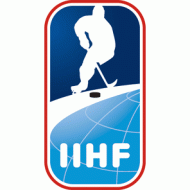Grenoble dominates Angers to clinch 9th Ligue Magnus title
Brûleurs de Loups seal the title at home with dominant Game 5 victory as veterans Hardy and Fleury bid farewell to the ice Read more»

A quick and clear guide to understand one of most discussed IIHF rule
Some of the greatest hockey action fans can witness each year come via International Ice Hockey Federation events, mainly the World Championships. The IIHF typically goes with a different rule book than the NHL, which sometimes create more confusion. Instead of players being free to sign with whoever they want in the NHL, there are strict guidelines in IIHF competition aimed at keeping the integrity of the game in check and allow for some fantastic action.
Now most people know about the hockey heavyweights, including Canada, Russia, USA and Sweden. But, if you don’t pay attention beyond that, you may not notice that teams like India, Saudi Arabia, Indonesia and Brazil all having hockey programs too. We don’t blame you, these teams don’t do a whole lot year-to-year. But what makes some teams members while others, that may already play, not? In Part Three of the Understanding the Game series here on The Hockey House, let’s take a deeper look to help you learn about the international game and it’s confusing procedures.
To indicate which teams are eligible to play in which events, the IIHF has four different levels of membership that allow teams to operate under. This means, for example, a team with a IIHF Affiliate Membership, such as Chile, can’t go an play a team like Sweden in the same event. Here’s a breakdown to clarify everything:
Ah, this is the confusing part.
Any team that have teams but are not members, such as Colombia or Argentina, are able to compete in small international events (ones not formally organized by the IIHF), but still need to fill out the various factors to become IIHF members.
This isn’t a very common occurrence, but when a country split in to two or more nations, what exactly happens to the teams involved? According to the IIHF,“If a sovereign state has been newly established by separation from an existing sovereign country and its Member National Association is then affiliated to the IIHF, its national team may be entered into the bottom division or qualification of the respective competitions.” In short, the country with the most participating players in the past four years gets to stay in the division they previously qualified for, while the second team has to start all over again.
Let’s take a look at the two countries that once made up Czechoslovakia, the Czech Republic and Slovakia. It was decided that the Czech Republic would continue to stay as a top division team in international competition, but Slovakia would have to start at the bottom once again. It didn’t take them that long to find themselves back at the top, winning the C1 World’s in 1994 and the B division in 1995 before heading to the main tournament for the 1996 World’s in Vienna.
This one’s rare, but regardless, it’s a simple concept. Let’s say Mexico and the United States decided to get married and create one united nation. Mexico, a lower level team, wouldn’t have to worry about spending time in Division IIB anymore because both countries will get to play together as one in the higher division between them. In this case, USA already participates in the top division, which means that the United States of Mexico would get to play at the Olympics and the World Championships. Simple enough?
Follow me on twitter, @StevenEllisNHL. Rrahim Curri
(F)
Rrahim Curri
(F)
 KeuPa HT Keuruu
KeuPa HT Keuruu IPK Iisalmi
IPK Iisalmi Anders Koch
(D)
Anders Koch
(D)
 Kiekko-Espoo
Kiekko-Espoo Juho Koivusaari
(F)
Juho Koivusaari
(F)
 Kiekko-Espoo
Kiekko-Espoo Teemu Tallberg
(F)
Teemu Tallberg
(F)
 Kiekko-Espoo
Kiekko-Espoo Kasper Kotkansalo
(D)
Kasper Kotkansalo
(D)
 Kiekko-Espoo
Kiekko-Espoo Tobias Ekberg
(D)
Tobias Ekberg
(D)
 Kiekko-Espoo
Kiekko-Espoo Mora IK
Mora IK Tim Bothén
(F)
Tim Bothén
(F)
 Karlskrona HK
Karlskrona HK
 Czech Rep.:
Tipsport extraliga |
1.liga |
2.liga
Czech Rep.:
Tipsport extraliga |
1.liga |
2.liga
 Slovakia:
Tipsport Extraliga |
1.liga
Slovakia:
Tipsport Extraliga |
1.liga
 Sweden:
SHL |
HockeyAllsvenskan
Sweden:
SHL |
HockeyAllsvenskan
Other: EBEL | Belarus | Croatia | Denmark | Estonia | France | Great Britain | Iceland | Italy | Latvia | Lithuania | MOL-liga | Norway | Poland | Romania | Serbia | Slovenia | Spain | NHL | AHL |
Brûleurs de Loups seal the title at home with dominant Game 5 victory as veterans Hardy and Fleury bid farewell to the ice Read more»
For the first time since 2022 the capital will once again have a team in Sweden's top league. Read more»